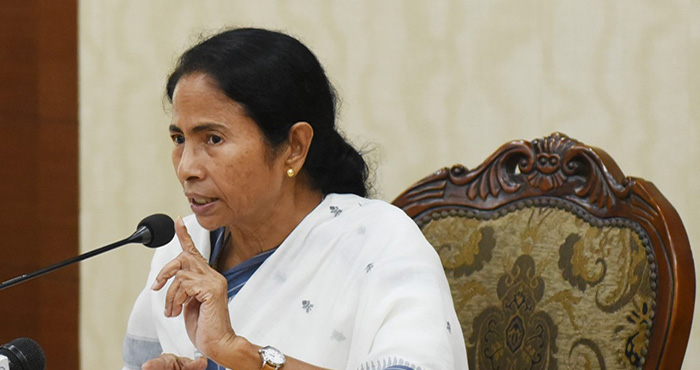Several important schemes are being implemented by the State Cooperation Department to improve the cooperative sector. The Trinamool Congress Government has been very proactive in empowering the rural population, as well as the urban population to some extent, by energising the cooperative sector.
Special Bad Debt Reserve for CCBs and PACS (Risk Fund): Under this scheme, an outright grant to primary agricultural cooperative societies (PACS) and central cooperative banks (CCB), at 4 per cent and 2 per cent, respectively, of the additional amount of loans issued over and above last year’s amounts, would be given to encourage agricultural credit to the weaker sections of society. Rs 1,300 lakh has been allocated for the Special Bad Debt Reserve for CCBs (Risk Fund) and Rs 2,600 lakh has been allocated for the Special Bad Debt Reserve for PACSs (Risk Fund).
Strengthening of central cooperative banks (CCB): Rs 500 lakh has been allocated for assisting the weak central cooperative banks for 2018-19, to strengthen the capital base and raise the net worth, as these banks play a pivotal role in spreading the Cooperative Movement at the district-level.
Strengthening of primary agricultural cooperative societies (PACS): Rs 1,000 lakh has been allocated for assisting the weak primary agricultural cooperative societies in hiring godowns, purchasing furniture, giving incentives to staff, computerising offices and training SHGs, for a period of three years.
Investment in shares – National Rural Credit (Long Term Operations) Fund: Rs 500 lakh has been allocated for 2018-19 towards financial assistance in the form of State share to West Bengal State Cooperative Bank (WBSCB), Central Cooperative Banks (CCB), West Bengal State Cooperative Agricultural and Rural Development Bank (WBSCARD) and Primary Cooperative Agriculture and Rural Development Banks (PCARDB), to strengthen their capital base.
Assistance for universal membership: Rs 50 lakh has been allocated for 2018-19 for encouraging the weaker sections of society to be brought within the cooperative fold by allowing an assistance of Rs 250 per head to purchase shares of PACSs.
Training of self-help groups (SHG): Rs 965 crore has been allocated for 2018-19 for sensitisation and awareness training programmes for the members of more than 2 lakh SHGs, and for skill development training for the members of the SHGs.
Supply of long-term credit: Rs 500 crore has been allocated for 2018-19 for supplying long-term credit to the weaker sections of society by the agricultural and rural development banks.
Assistance for offsetting imbalance in PCARDBs: Rs 4,000 lakh has been allocated for 2018-19 for reviving WBSCARD and the PCARDBs under the long-term cooperative credit sector.
Urban credit cooperative sector: For 2018-19, for the revival and development of the urban cooperative banks (URB), urban credit cooperative societies (UCCS) and mahila cooperative societies (MCS), Rs 100 lakh, Rs 300 lakh and Rs 300 lakh, respectively has been allocated.
Establishment of cold storages: Rs 200 lakh has been allocated for 2018-19 for the repairing, renovation and expansion of cold storages under the various cooperatives.
Establishment of storage godowns: Rs 50 lakh has been allocated for 2018-19, to be given to primary agricultural credit societies and primary agricultural marketing societies for the construction of godowns and the repairing and renovation of existing ones.
Assistance to agricultural marketing societies: Rs 1,000 lakh and Rs 50 lakh have been allocated to West Bengal State Cooperative Marketing Federation and the primary agricultural marketing societies, respectively, to supply agricultural inputs like fertilizers, seeds, etc. and market agricultural produce including procurement of paddy at the State Government-mandated minimum support price (MSP).
Rural Infrastructure Development Fund (RIDF): Rs 6,000 lakh has been allocated for 2018-19 under RIDF for the construction of large godowns, cold storages, rice mills, seed farms, etc.
Development of cooperative societies: For 2018-19, Rs 200 lakh has been allocated for Apex Consumers’ Cooperative Society, Rs 300 lakh for urban consumers’ cooperative societies and another Rs 200 lakh for rural consumers’ cooperative societies.
Training: Rs 275 lakh has been allotted for 2018-19 for the construction of training centres and for conducting training programmes by West Bengal State Cooperative Union.
Samabay Bhavans: Samabay Bhavans have been built in the districts of Purba Bardhaman (Bardhaman), Paschim Bardhaman (Asansol), Bankura, Purulia, North 24 Parganas and Paschim Medinipur. Construction is going on in Malda. Rs 200 crore has been allotted for constructions in a few more districts.
Ad hoc Grant to employees of cooperative societies: Rs 1,500 crore has been allocated for 2018-19 under the head of Ad hoc Grant for enhancing the emoluments of the employees of the various cooperative societies.
West Bengal Cooperative Service Commission: Rs 74 lakh has been allocated for 2018-19 for West Bengal Cooperative Service Commission, which selects and recommends the appointments of personnel in cooperative societies across the state, in line with the provisions of the West Bengal Cooperative Societies Act, 2006.










